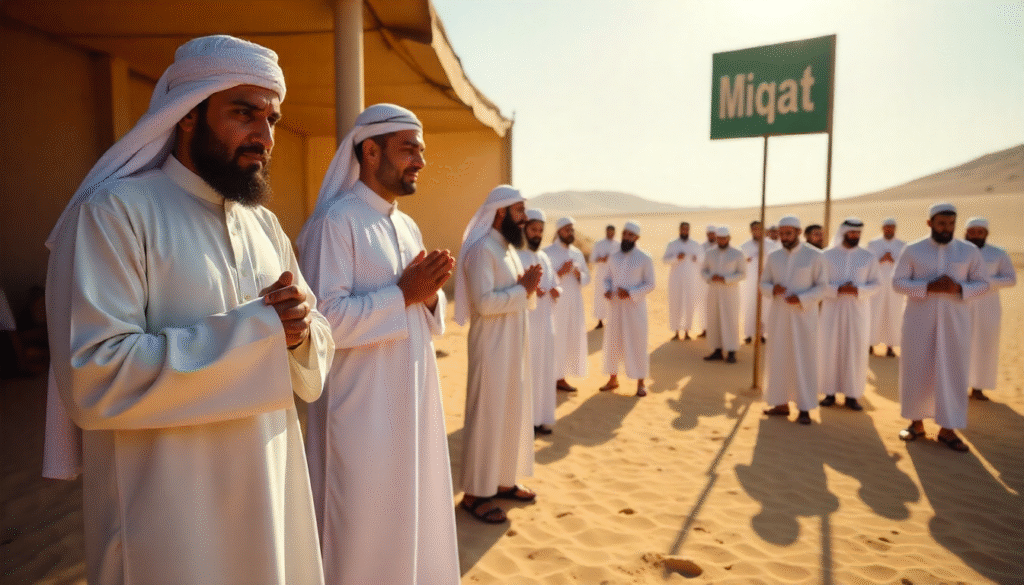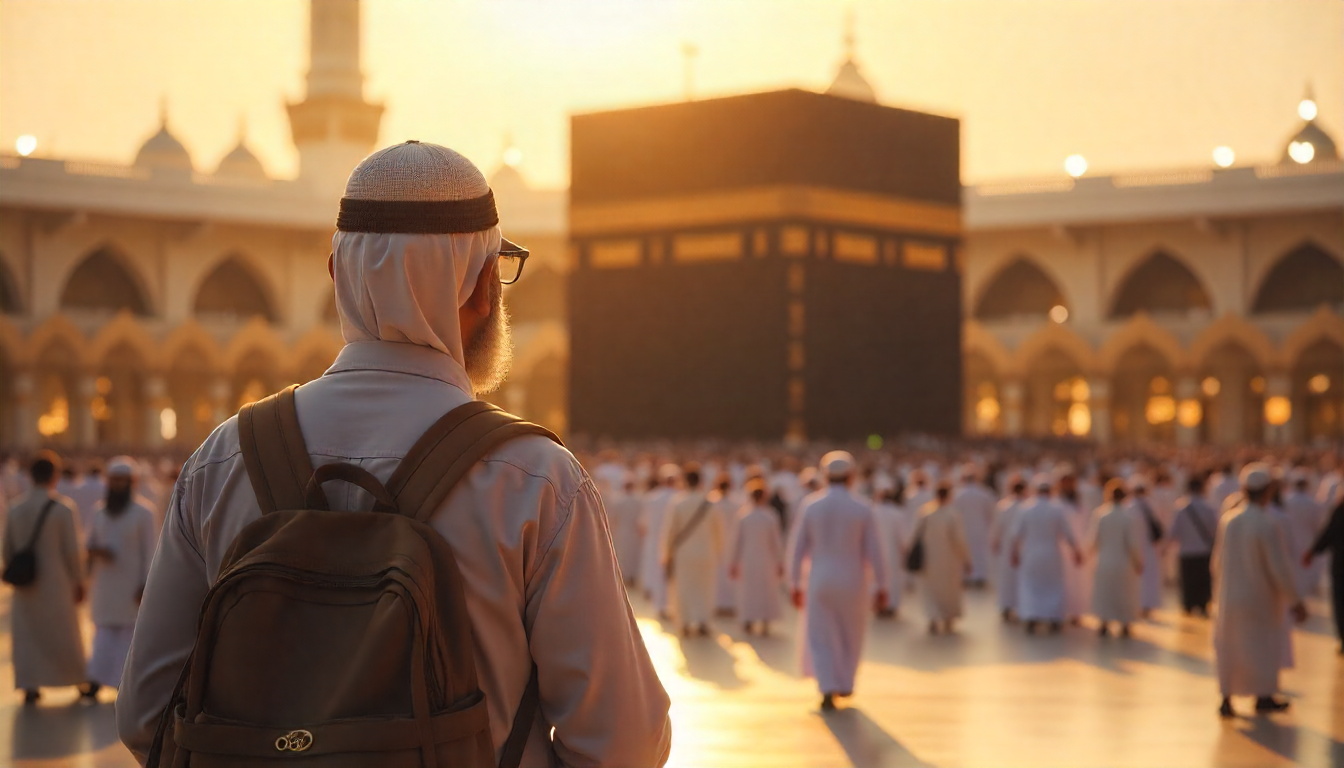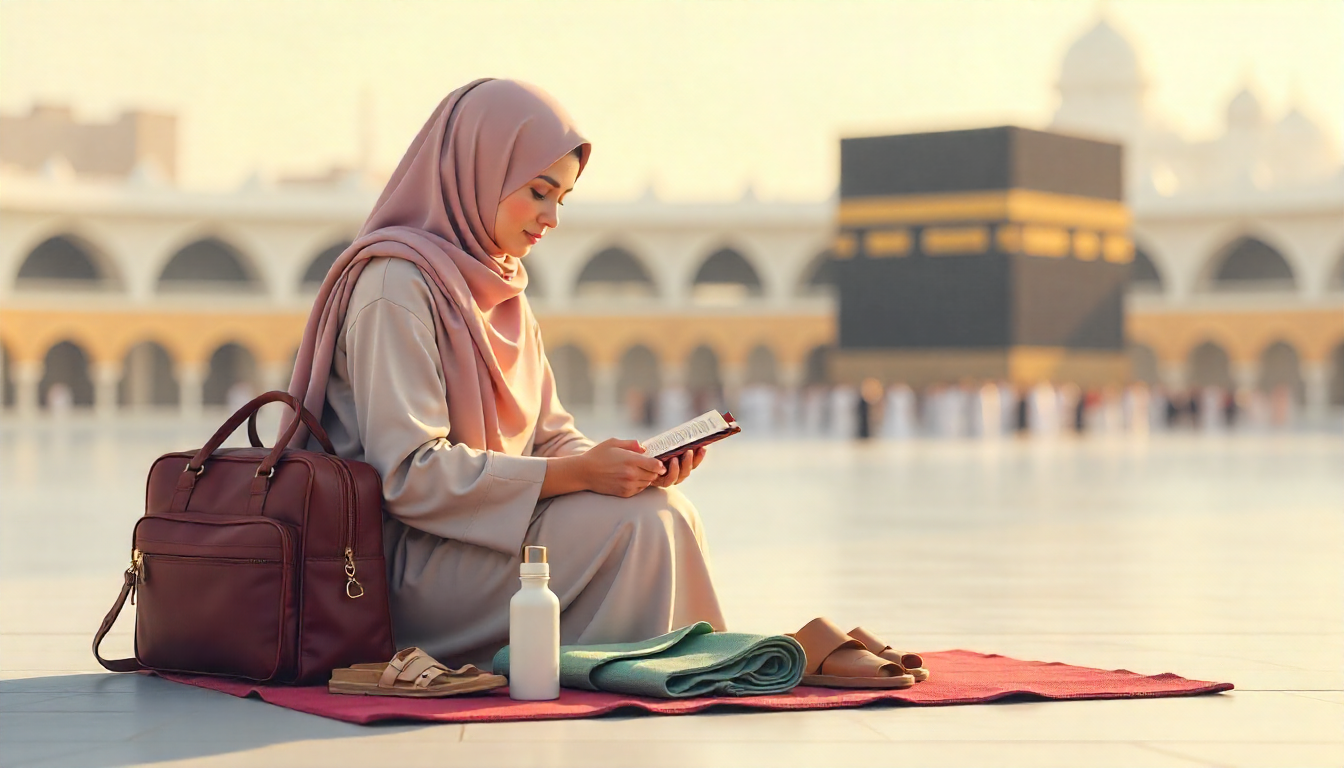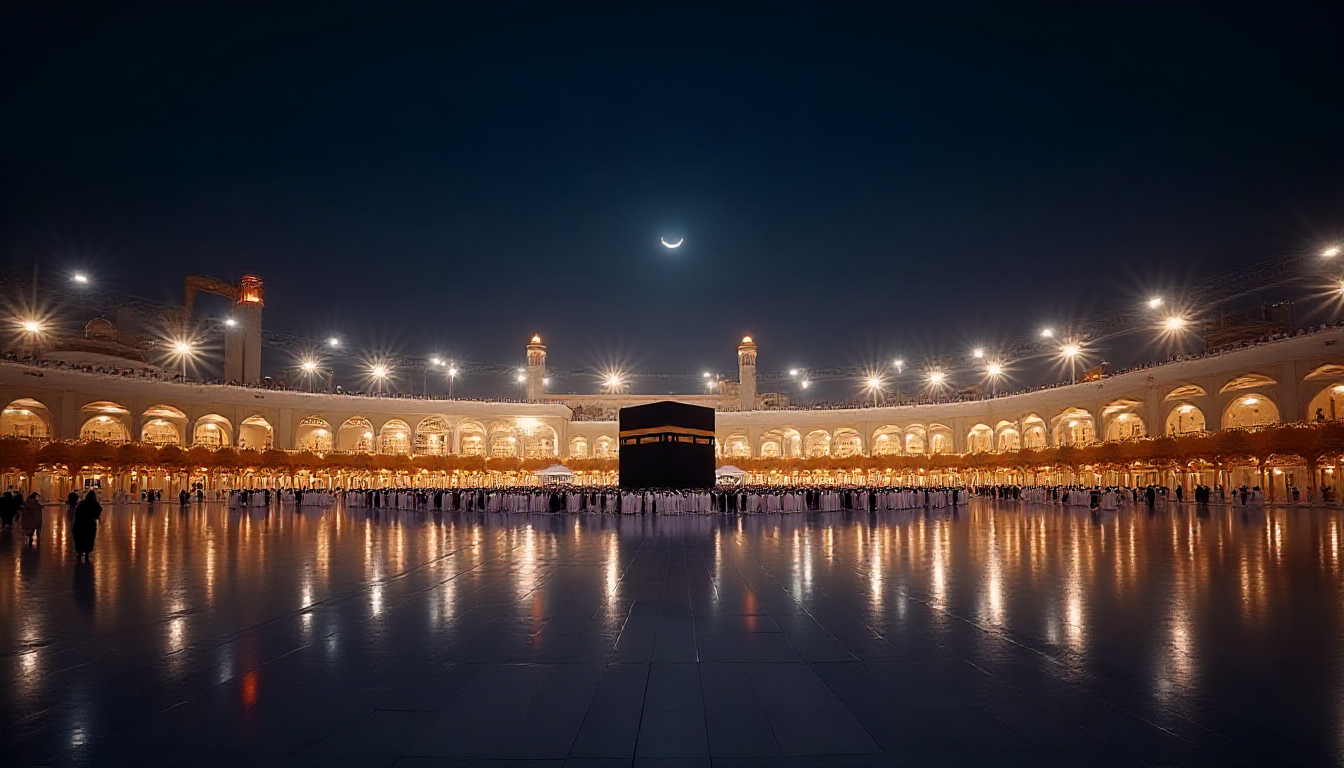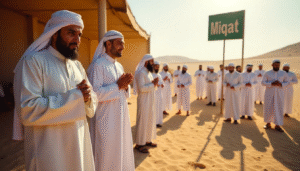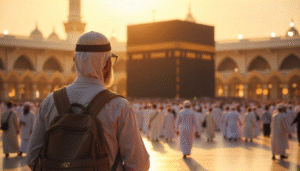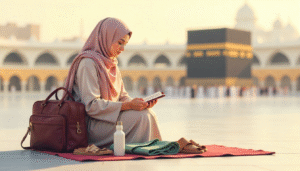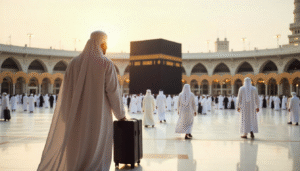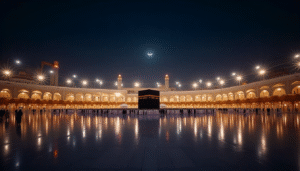When preparing for the sacred journey of Umrah or Hajj, one of the most important steps is entering into the state of Ihram. This spiritual condition represents purity, equality, and submission to Allah. The rituals of Ihram remind every pilgrim that they are leaving behind worldly distinctions such as wealth, social status, and appearance to stand equal before their Creator.
The act of entering Ihram begins with a sincere intention, followed by specific practices such as wearing designated clothing, reciting the Talbiyah, and observing certain restrictions. Many Umrah Packages provide guidance on these steps, helping pilgrims understand the process of intention, miqat, and entering Ihram properly to ensure that the pilgrimage starts in the right way.
What is the Intention in Ihram
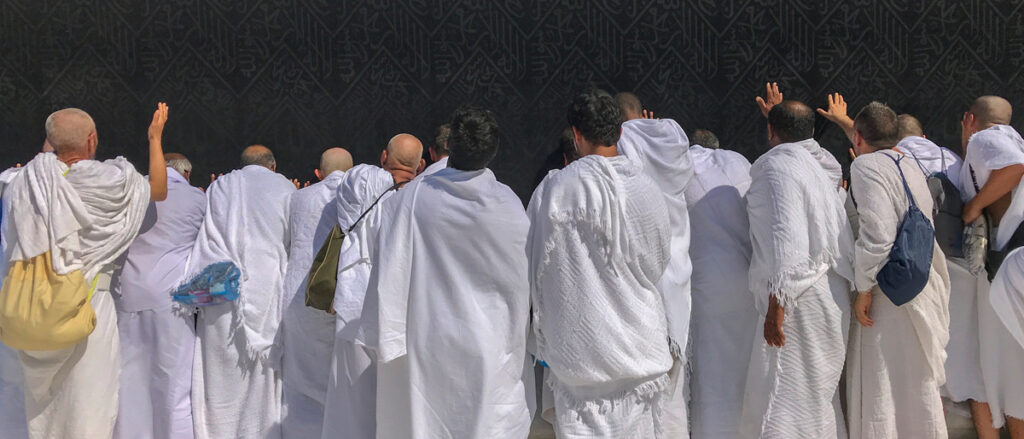
The intention, or niyyah, is the foundation of every act of worship in Islam. When a pilgrim decides to perform Hajj or Umrah, they must make the intention with a sincere heart, seeking only the pleasure of Allah. This intention does not need to be spoken out loud, but it must be firmly present in the heart.
The intention for Ihram is unique because it marks the moment when the pilgrim transitions into a sacred state. From this point onward, the pilgrim is bound by specific rules and practices until the rituals of Hajj or Umrah are completed.
Importance of the Intention in Ihram
The intention carries deep spiritual significance. It transforms ordinary actions into acts of worship. For example, traveling, dressing in plain garments, and avoiding certain comforts all become forms of worship when done with the right intention.
Without a clear and sincere intention, Ihram loses its meaning. The heart must be aligned with the purpose of the pilgrimage, reminding the believer that the journey is not just physical but also spiritual.
What is Miqat and its Role
Miqat refers to the designated boundary points set by the Prophet Muhammad (peace be upon him) from where pilgrims must enter into the state of Ihram. These locations are specific to different directions and regions, ensuring that every pilgrim approaches the holy cities with the same level of preparation.
The miqat is not simply a geographical marker. It is a spiritual threshold that separates ordinary travel from sacred pilgrimage. Crossing it without entering Ihram is considered invalid, which highlights the importance of understanding its role.
Different Types of Miqat
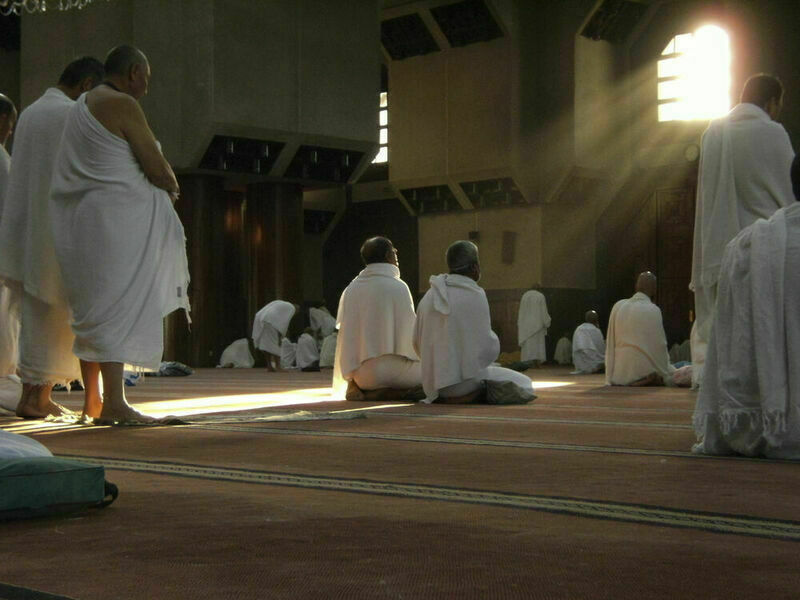
The Prophet Muhammad (peace be upon him) designated five different miqat points for pilgrims coming from various regions. Each point corresponds to the direction from which people travel. For instance, Dhul Hulayfah is the miqat for people coming from Madinah, while Yalamlam is for those arriving from Yemen.
Even for pilgrims traveling by air, the airlines usually announce when the miqat is approaching, so that travelers can prepare to enter Ihram. Modern travel methods may be different, but the rules of miqat remain the same.
Why the Miqat is Important
The miqat ensures that every pilgrim is spiritually and physically prepared before entering the holy cities of Makkah and Madinah. It acts as a checkpoint where worldly distractions are left behind, and the focus shifts fully toward the pilgrimage.
By observing miqat, pilgrims show respect for the sacred boundaries established by Allah and His Messenger. It emphasizes discipline, unity, and the shared experience of entering Ihram together.
Entering into the State of Ihram
Once a pilgrim reaches the miqat, the process of entering Ihram begins. This involves several practical steps, including bathing or performing ablution, wearing the Ihram garments, and reciting the Talbiyah. These acts together mark the start of the sacred state.
The simplicity of Ihram clothing symbolizes equality. Men wear two white unstitched sheets, while women wear modest dress that covers their bodies without being overly decorative. This attire reminds pilgrims that in the eyes of Allah, all are equal.
The Spiritual Benefits of Entering Ihram
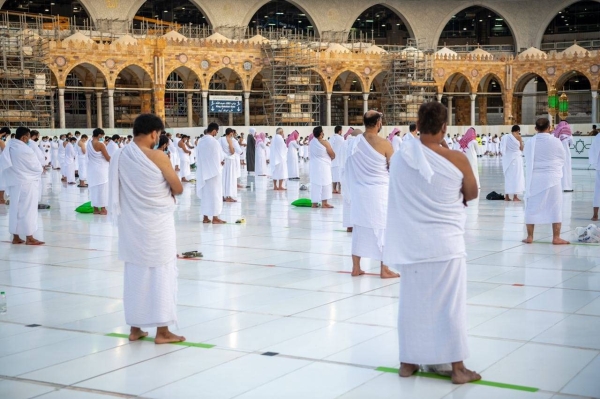
Entering Ihram is not only a physical practice but also a mental and spiritual reset. By removing the markers of wealth and social class, pilgrims embrace humility and focus entirely on worship.
The restrictions of Ihram, such as avoiding arguments, refraining from harming others, and abstaining from cutting hair or nails, help cultivate patience and self-control. These qualities are essential for a spiritually meaningful pilgrimage.
Essential Steps Before Entering Ihram
Before officially entering Ihram, pilgrims are recommended to take a bath, trim their nails, and wear clean clothing. These steps symbolize purity and preparation for worship. For men, applying fragrance before wearing Ihram is permitted, but once the garments are on, no perfume should be used.
Performing two units of prayer before Ihram is also recommended. This prayer helps the pilgrim focus their mind and heart on the sacred journey ahead, setting the tone for the days to come.
Reciting the Talbiyah
One of the most important elements of entering Ihram is reciting the Talbiyah. The words declare the pilgrim’s readiness to respond to Allah’s call: “Here I am, O Allah, here I am. Here I am, You have no partner, here I am. Verily all praise, grace, and sovereignty belong to You. You have no partner.”
The Talbiyah is recited aloud by men and softly by women. It is repeated frequently throughout the pilgrimage, serving as a reminder of the pilgrim’s purpose and devotion.
Restrictions During Ihram
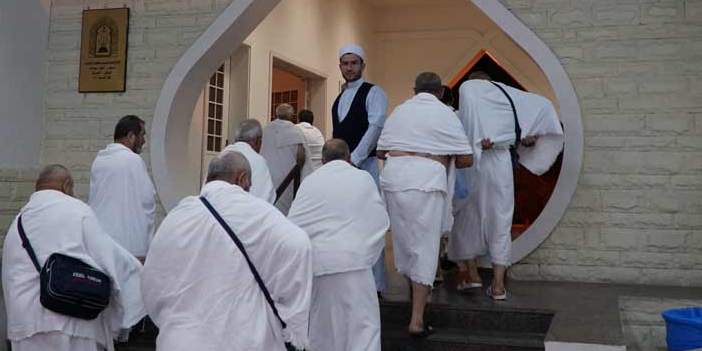
Once in Ihram, certain activities become prohibited. These include cutting hair or nails, applying fragrance, engaging in marital relations, hunting, and wearing stitched clothing for men. These restrictions may seem challenging, but they are meant to cultivate discipline and mindfulness.
For women, the restrictions are slightly different, but modesty and humility remain central. Covering the face with a veil is not permitted, although women may use their hands or garments to shield themselves when necessary.
Why Restrictions are Important
The restrictions of Ihram are not punishments but spiritual practices. They teach self-control, patience, and empathy for others. By giving up certain comforts, pilgrims experience humility and strengthen their relationship with Allah.
The state of Ihram also encourages unity, as millions of people observe the same rules regardless of their backgrounds. This shared experience builds a sense of brotherhood and sisterhood among Muslims from around the world.
Common Mistakes in Entering Ihram
Some pilgrims enter Ihram without fully understanding the rules, leading to mistakes. For example, failing to make the intention at the miqat, applying perfume after putting on the garments, or engaging in arguments during Ihram can affect the validity of the pilgrimage.
It is important to study and prepare in advance. Guidance from scholars, reliable travel agents, or experienced family members can help pilgrims avoid these errors and perform their rituals correctly.
Importance of Knowledge in Ihram
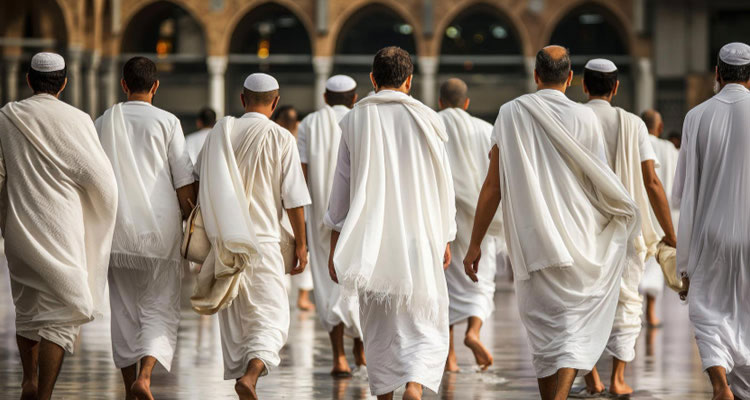
Knowledge is essential for a successful pilgrimage. Without knowing the proper procedures for Ihram, a pilgrim may unintentionally invalidate parts of their worship. Learning about intention, miqat, and restrictions before traveling ensures that every step is performed with confidence.
Studying Ihram also increases appreciation for its spiritual depth. Rather than simply following rituals, the pilgrim understands their meaning and purpose, making the experience more enriching.
Benefits of Properly Observing Ihram
When Ihram is observed correctly, it sets a strong foundation for the rest of the pilgrimage. The sincerity of intention, respect for miqat, and careful adherence to restrictions prepare the heart for the deeper rituals of Umrah and Hajj.
Pilgrims who enter Ihram with mindfulness often find their journey smoother and more spiritually fulfilling. They are better able to focus on worship and less likely to be distracted by minor difficulties.
Ihram as a Symbol of Equality
One of the most beautiful aspects of Ihram is the equality it represents. When millions of Muslims wear the same garments, the differences of wealth, nationality, and social status disappear. Everyone stands equal before Allah, united in worship.
This equality fosters humility and empathy. Pilgrims realize that their value lies not in material possessions but in their devotion and sincerity toward Allah.
Preparing Emotionally for Ihram

Beyond physical preparation, emotional readiness is vital. Pilgrims should enter Ihram with a calm and focused mind, leaving behind stress, disputes, and worldly concerns. This emotional preparation allows them to embrace patience and gratitude throughout the pilgrimage.
Engaging in acts of kindness, forgiveness, and charity before Ihram helps soften the heart. A gentle heart is more receptive to the spiritual lessons of the pilgrimage.
Ihram in Modern Travel
With the rise of air travel, entering Ihram has become slightly more complex. Pilgrims often begin their journey at airports, where they must change into the garments and make their intention before crossing the miqat. Many airlines provide announcements to guide passengers, but personal preparation is still necessary. Experienced Umrah Travel Agents also advise pilgrims on how to prepare for Ihram during flights, ensuring they do not miss the miqat and begin their pilgrimage correctly.
Some travelers choose to wear their Ihram garments before boarding the plane, while others change in-flight or during a layover. Whatever the method, the key is to ensure that Ihram is entered at or before the miqat boundary.
Benefits of Ihram for Personal Growth
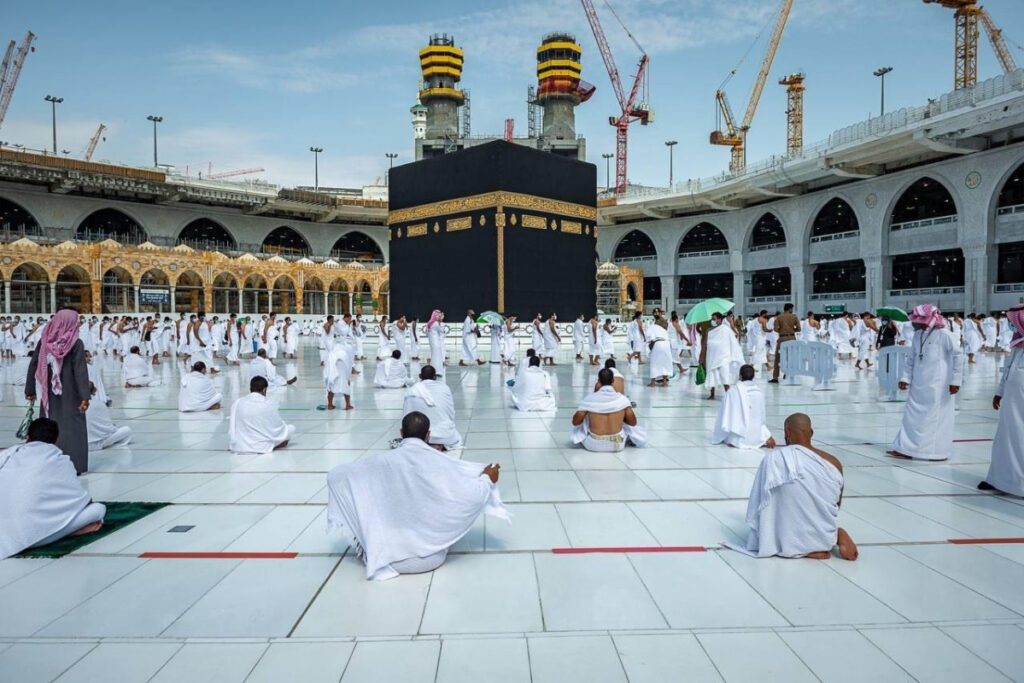
The experience of Ihram is a test of patience, discipline, and humility. It helps pilgrims detach from worldly attachments and focus on spiritual growth. The restrictions may feel challenging at first, but they train the believer to prioritize faith over comfort.
Many pilgrims return home with a renewed sense of discipline and a deeper connection to Allah. The lessons learned during Ihram often continue to benefit their daily lives long after the pilgrimage ends.
Conclusion
The journey of Umrah or Hajj begins with the powerful steps of intention, miqat, and entering Ihram. These practices set the spiritual foundation for the pilgrimage, reminding every Muslim of equality, humility, and devotion.
By understanding the importance of intention, respecting the rules of miqat, and carefully observing the requirements of Ihram, pilgrims prepare themselves for a journey that is both spiritually and personally transformative. Entering Ihram is not only about clothing and rituals but about starting the pilgrimage with a pure heart and a sincere commitment to worship.


